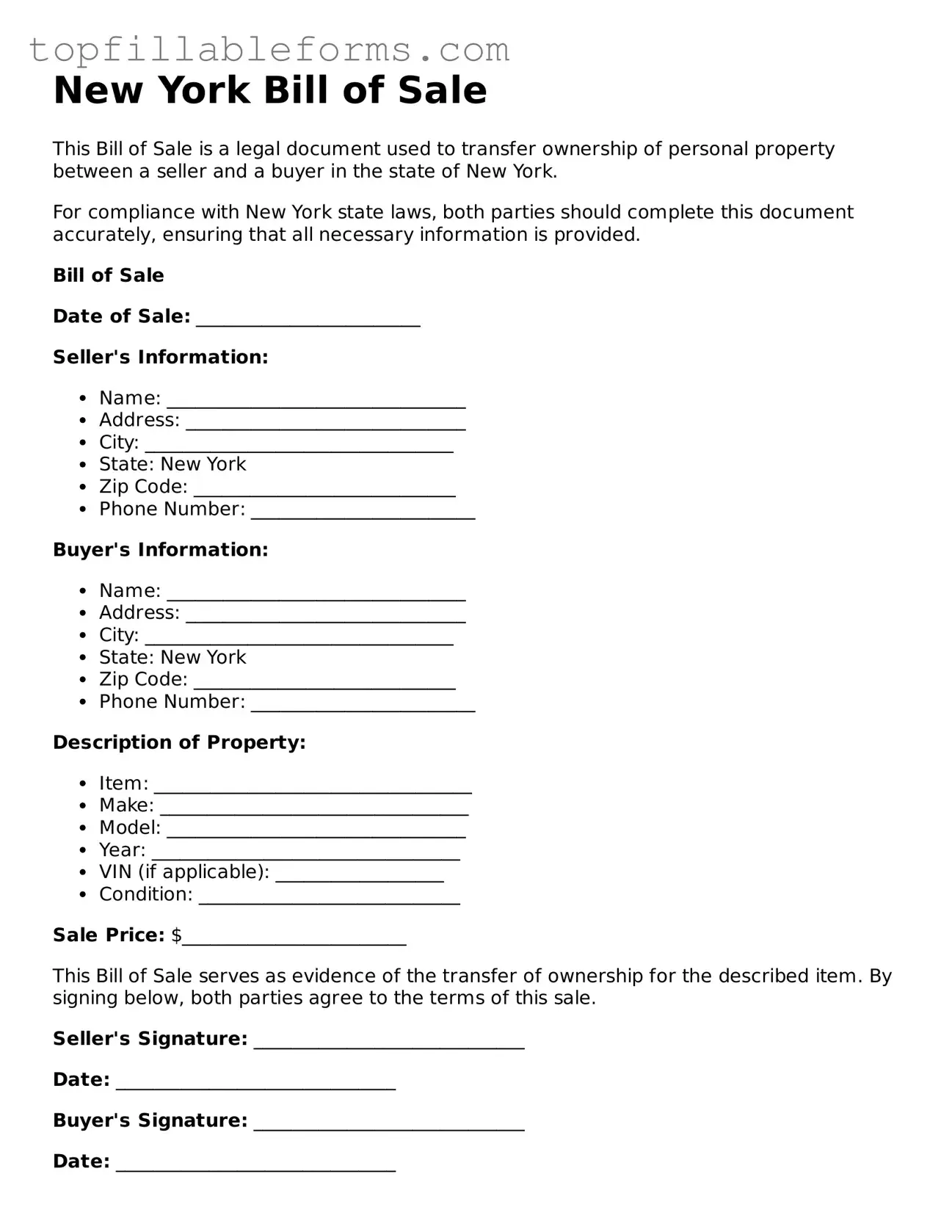Attorney-Verified Bill of Sale Template for New York
The New York Bill of Sale is a legal document that serves as proof of the transfer of ownership of personal property from one individual to another. This form is essential for both buyers and sellers, as it provides a clear record of the transaction and can help prevent disputes in the future. Understanding its components and requirements is crucial for anyone engaging in the sale of items such as vehicles, equipment, or other valuable goods in New York.
Open Bill of Sale Editor Here

Attorney-Verified Bill of Sale Template for New York
Open Bill of Sale Editor Here
Finish the form now and be done
Finish your Bill of Sale online by editing, saving, and downloading fast.
Open Bill of Sale Editor Here
or
▼ PDF File
